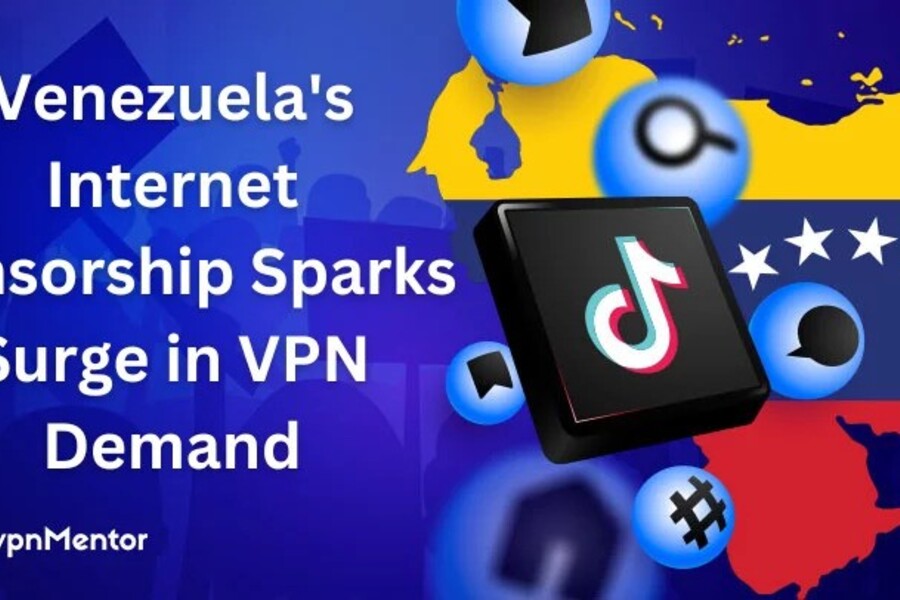Venezuela is facing increasing internet censorship, causing a dramatic rise in the use of Virtual Private Networks (VPNs). The government’s actions to block popular platforms like TikTok, Twitter (X), and Telegram have coincided with nationwide protests against President Nicolás Maduro, who is trying to stay in power despite losing the 2024 presidential election. These restrictions have left citizens searching for ways to bypass censorship and stay connected.
In November 2024, Venezuela’s Supreme Court fined TikTok $10 million after viral challenges on the platform led to the tragic deaths of three children. The court demanded that TikTok open a local office to monitor content and comply with local laws. When TikTok failed to meet the demands, Venezuelan internet service providers (ISPs) began blocking access to the platform in early January 2025. These blockades used various methods, such as blocking IP addresses and manipulating DNS systems, to prevent users from accessing TikTok.
The blockades didn’t stop at TikTok. On January 9, the government ordered ISPs to block 21 VPN services and 33 public DNS providers, further tightening internet restrictions. Platforms like Telegram, Canva, and the PlayStation Network were also blocked. Twitter (now X) has been intermittently banned since mid-2024, and state-owned ISPs continue to restrict access to the platform.
These internet restrictions have occurred alongside widespread protests. Many Venezuelans have taken to the streets to oppose Maduro’s attempt to cling to power. Riot police have been deployed across major cities, escalating tensions between protesters and the government. Critics argue that the internet blockades are part of a broader strategy to silence dissent and limit the flow of information.
In response to these restrictions, Venezuelans are increasingly turning to VPNs. VPNs allow users to bypass government censorship and access restricted content by masking their location and encrypting their internet traffic. Demand for VPN services surged by 328% in early January 2025, with a significant 200% increase over just two days. Despite the government’s efforts to block some VPN providers, popular services like CyberGhost VPN, NordVPN, and PureVPN remain functional, helping citizens stay connected.
The government justifies its actions by claiming they are necessary to protect public safety. It cites incidents like the TikTok challenges as examples of the dangers posed by unregulated online content. However, critics argue that the blockades are part of a larger effort to control the narrative and suppress political opposition.
The crackdown on digital platforms has raised serious concerns about freedom of speech and access to information in Venezuela. The restrictions make it difficult for citizens to communicate, organize protests, and share information about what is happening in the country. This is especially troubling as the political crisis continues to unfold.
For Venezuelans, VPNs have become a lifeline in their fight against censorship. These tools allow people to stay informed, maintain communication, and push back against government restrictions. However, the growing demand for VPNs also highlights the challenges of living in a country where internet access is increasingly controlled by the state.
As the situation in Venezuela continues to evolve, the fight for internet freedom remains a critical issue. The government’s actions to restrict access to information not only impact individual freedoms but also raise questions about the future of digital rights in the country. For now, Venezuelans are determined to stay connected and resist the government’s efforts to control their online lives.

